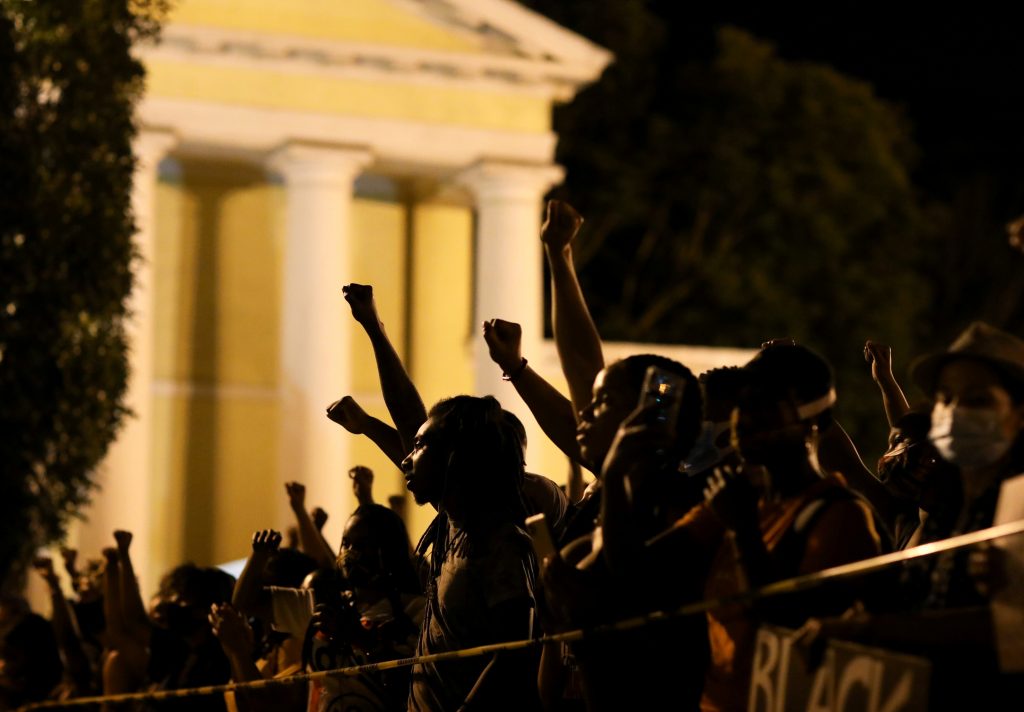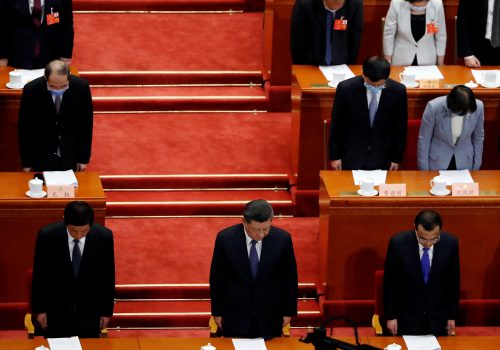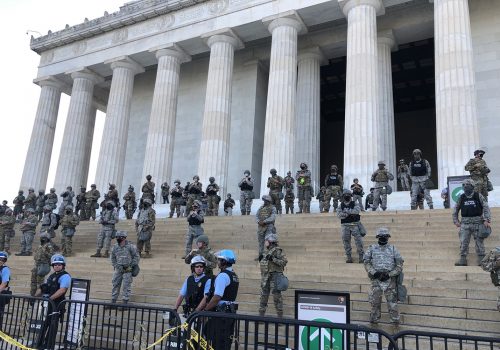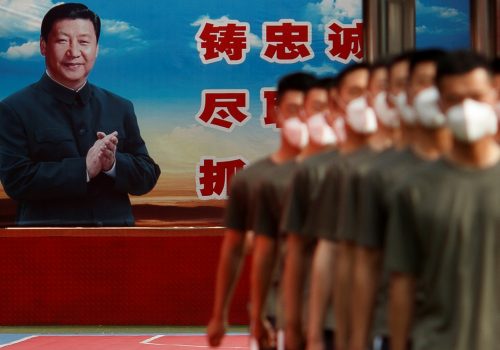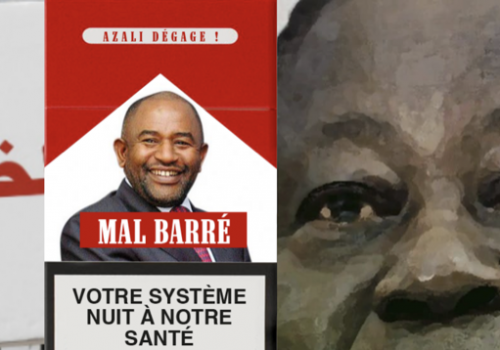It must be said plainly and repetitively, so that no one can miss the significance of this historic moment for the United States and its allies, who depend on its leadership.
The continued U.S. ability and credibility to lead rests on how effectively the country manages and learns from the triple shock of 2020: the worst global pandemic in a century, the deepest economic downturn since the Great Depression and now the most extensive racial upheavals in fifty years.
Yet it may be the third of those challenges that proves to be most difficult, decisive and differentiating, preceded by centuries of history but triggered by police officer Derek Chauvin’s gruesome killing of George Floyd on the night of May 25 in Minneapolis.
That is because in a world where most countries share the global challenge of COVID-19 and recession, the nature of this racial drama is singular to the United States as “the only modern nation that had slavery in its midst from the very beginning,” writes Harvard sociologist Orlando Patterson in this weekend’s Wall Street Journal.
It’s also due to the timing of these upheavals, coming in such a divisive electoral year and at a moment of escalating major power competition with China. That has left many in the world viewing this period as a litmus test of the United States’ rare set of founding principles that enshrine the notion that all human beings are created equal and endowed by God with inalienable rights.
Get the Inflection Points newsletter
Subscribe to Frederick Kempe’s weekly Inflection Points column, which focuses on the global challenges facing the United States and how to best address them.
Even as peaceful anti-racism protests expanded through the United States for the twelfth successive day on Saturday, demonstrations as well in countless cities around the world underscored the collective understanding of the significance of this moment. The protests stretched from South America to Africa, from Europe to Southeast Asia, and from Mexico to Canada.
From its beginnings through the Civil War, through the civil rights revolution and until today, the United States’ delivery on its founding principles has been imperfect. What has inspired the world despite that has been the U.S.’ ability to self-correct and improve.
“Our country has a birth defect,” wrote Condoleezza Rice this week in The Washington Post as the first and only African American woman to serve as Secretary of State. “Africans and Europeans came to this country together – but one group was in chains. In time, the very Constitution that counted slaves as three-fifths of a man became a powerful tool in affording the descendants of slaves their basic rights. That work has been long and difficult, but it has made a difference. We are better than we were.”
The question now is whether the United States can become better yet? The answer will have global consequences.
As I wrote in a public letter this week, “We can bring the free world together most effectively if we act to become more exemplary in our own behavior…If the United States is to have credibility in leading like-minded countries against the metastasizing cancers of nationalism and authoritarianism, it must remain true to best founding principles.”
As Lincoln said in December of 1862, one month before signing the Emancipation Proclamation, “We shall nobly save, or meanly lose, the last best hope on earth.”
The underpinnings of American foreign policy always have been the effectiveness of its democratic institutions and the global attractiveness of its democratic values. Both are now being tested.
Americans will be unable to shape the international order if they fail in addressing their national disorder characterized by problems that range from systemic racism to political polarization and from failing infrastructure to insufficient international engagement.
The killing or George Floyd, a 46-year-old African American man, was horrifying, but much of what has followed suggests that the United States is rediscovering what President Lincoln, in his first inaugural address, called “the better angels of our nature.”
Most remarkable have been the large and diverse crowds of peaceful protestors that have demonstrated against racism in the United States and across the world.
“I know enough about that history to say, there is something different here,” President Obama said this week, comparing the situation to the 1960s. “You look at those protests, and that was a far more representative cross-section of America out on the streets, peacefully protesting, who felt moved to do something because of the injustices that they have seen. That didn’t exist back in the 1960s, that kind of broad coalition.”
Perhaps this week’s greatest accomplishment is what didn’t happen. President Trump didn’t invoke the Insurrection Act of 1807, which would have allowed him to bring large numbers of military troops to the streets in a law enforcement capacity.
Secretary Mark Esper told a Pentagon press conference he wouldn’t support such a move, and a storm of opposition from former military and defense leaders supported his position.
That followed the forced dispersal last Monday evening of peaceful protestors from Lafayette Square to make way for President Trump’s walk from the White House to St. John’s Episcopal Church, alongside his defense secretary and chairman of the Joint Chiefs of Staff, to be photographed holding the Bible.
That prompted Jim Mattis, a retired Marine general and President Trump’s former defense secretary, and Mike Mullen, a retired admiral and the 17th Chairman of the Joint Chiefs to break their silence in criticizing their commander-in-chief. Some 89 former defense officials joined the chorus this weekend against the use of active-duty military without the consent of local mayors or governors.
“I have to date been reticent to speak out on issues surrounding President Trump’s leadership,” explained Mullen in The Atlantic, “but we are at an inflection point, and the events of the past few weeks have made it impossible to remain silent.”
Beyond breaking silence, American communities, workplaces and media are awash with ideas about how to ensure this moment brings real results.
Perhaps the most lasting change could come through a rebellion of individual acts.
“Let us talk with, not at, each other — in our homes, schools, workplaces and places of worship,” suggested former Secretary of State Condoleezza Rice. “As united Americans, we can then turn our fears into faith, hope, compassion and action. And then we can accept and carry out our shared responsibility to build ‘a more perfect union.’”
“What will you do?” she asks all Americans, before making her own personal commitment to expanding educational opportunity “as a partial shield against prejudice.”
We’ll do our part at the Atlantic Council with our collective action, enhancing our diversity efforts with paid internships and anti-bias training, and expanding our substantive work to study the crucial domestic underpinnings of U.S. foreign policy.
If enough others join Secretary Rice, Americans have a shot at proving Martin Luther King right that the long arc of the moral universe once again “bends toward justice.”
This article originally appeared on CNBC.com
Frederick Kempe is president and chief executive officer of the Atlantic Council. You can follow him on Twitter @FredKempe.
THIS WEEK’S TOP READS
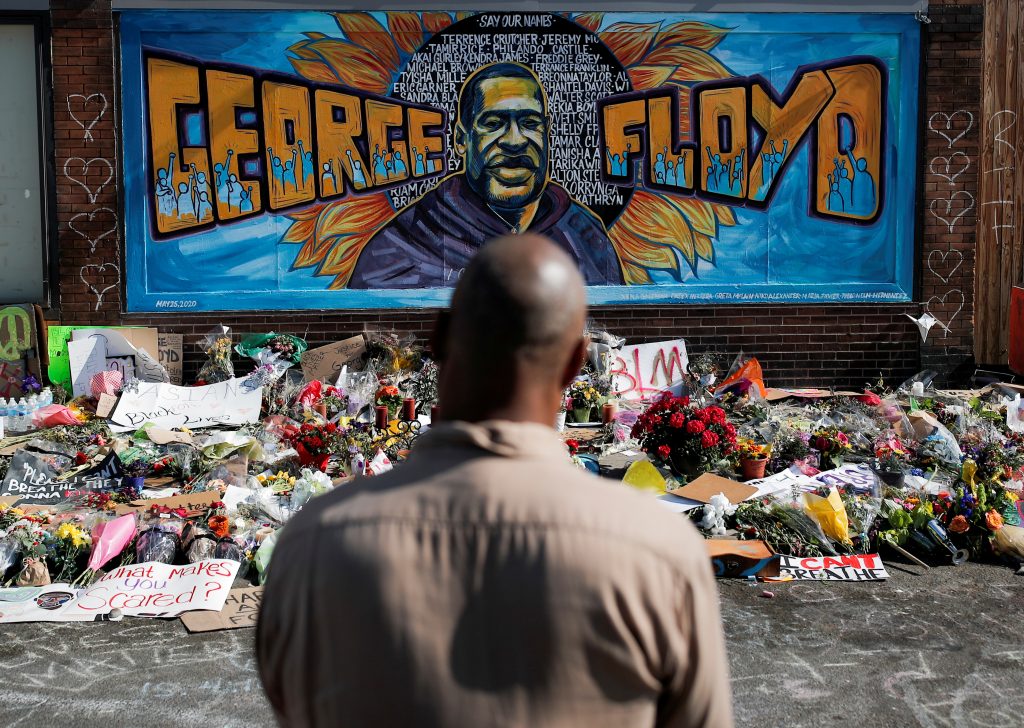
This week’s top reads include sociologist Orlando Patterson’s reflections on why two centuries of progress in race relations have still left many black Americans with the reality of exclusion and injustice.
Washington Post columnist David Ignatius tells the story of what prompted Mike Mullen, retired Navy admiral and former Chairman of the Joint Chiefs of Staff, and Jim Mattis, the retired Marine general and former defense secretary to President Trump, to break their silence on criticizing the US commander-in-chief.
Foreign Affairs provides a deep dive on rising debt burdens and what the differing risks are for the United States and poorer countries.
The Economist’s Charlemagne reflects on how Brexit has made it easier for the EU to unite at this time of coronavirus.
This week’s must-read comes from the German news magazine Der Spiegel on why Chancellor Merkel has made China policy the cornerstone of her country’s upcoming EU presidency.
#1. TWO COMPETING AMERICAS
The Long Reach of Racism in the U.S.
Orlando Patterson / THE WALL STREET JOURNAL
Orlando Patterson, Jamaican-born author and cultural sociologist, this weekend provided a powerful reflection on why “race is the fulcrum upon which two radically different visions of America pivot.”
“In the inhuman, banal killing of George Floyd in Minneapolis we see the reactivated weight of the country’s darkest past,” he writes. “In the nationwide demonstration of young blacks and whites against it and other recent racist killings, we see the outraged, countervailing force of that other America which Martin Luther King Jr. imagined as the ‘beloved community.’”
He traces the unique American history as “the only modern nation that had slavery in its midst from the very beginning” right up to his current hopes that America’s better angels will prevail. “But, in these times,” he adds, “it is naive not to be deeply worried.” Read More →
#2. THE MATTIS MOMENT
Why Mattis and Mullen toppled their bridge of silence
David Ignatius / THE WASHINGTON POST
In the union there is strength
James Mattis / THE ATLANTIC
Washington Post columnist David Ignatius calls it “catastrophe theory,” the moment when a heavy load causes a bridge to collapse, though it has carried a million vehicles previously.
With that he explains how President Trump’s words and actions of the past week prompted Jim Mattis and Mike Mullen to break their public silence about his leadership. Read More →
“When I joined the military, some 50 years ago,” Mattis writes, “I swore an oath to support and defend the Constitution,” he wrote in a statement published by The Atlantic. “Never did I dream that troops taking that same oath would be ordered under any circumstance to violate the Constitutional rights of their fellow citizens—much less to provide a bizarre photo op for the elected commander-in-chief, with military leadership standing alongside.” Read More →
#3. THE UNFOLDING DEBT DRAMA
The Age of Magic Money
Sebastian Mallaby / FOREIGN AFFAIRS
How to Prevent a Sovereign Debt Disaster
Patrick Bolton, Lee Buchheit, Pierre-Olivier Gourinchas, Mitu Gulati, Chang-Tai Hsieh, Ugo Panizza, Beatrice Weder di Mauro / FOREIGN AFFAIRS
Two Foreign Affairs contributions look at the very different dangers the COVID-19 era’s growing debt levels pose for the United States and the poorer nations of the world.
“The new era will present the biggest potential rewards—and also the greatest risks—to the United States,” argues Sebastian Mallaby. His argument is that the dollar’s entrenched position as the world’s reserve currency gives it a greater ability to sustain an expansion in government spending. At the same time, the management of that debt will depend on the credibility, and thus the independence, of the Federal Reserve. Read More →
A collection of authors looks at how the story will be very different for poorer nations. They need to borrow and spend perhaps even more, per capita, than rich countries. But there’s far less enthusiasm for their bonds and there’s more need for IMF emergency assistance. Read More →
#4. THE EU WITHOUT BRITAIN
The EU’s recovery fund is a benefit of Brexit
Charlemagne / THE ECONOMIST
Charlemagne in The Economist has always been one of my favorite features in the magazine, but this week’s entry is particularly worth reading.
“With Britain gone, the EU is coalescing. The scheme to issue a mix of grants worth €500bn and loans of €250bn to countries struggling with the effects of covid-19 is a step towards a more integrated bloc.”
I’m not as optimistic that will turn out to be true, but where The Economist is right is that the so-called “frugal four” who have criticized the scheme – Austria, Sweden, the Netherlands and Denmark – make up on a tenth of the EU’s population and lack London’s weight. Read More →
#5. MERKEL’S CHINA POLICY
Merkel and the EU Trapped between China and the U.S.
Christiane Hoffmann, Peter Müller, Christoph Schult and Gerald Traufetter / DER SPIEGEL
One of the world’s most significant strategic issues is how Europe will navigate the increasing competition between China and the U.S.
A group of reporters from Der Spiegel, Germany’s most prominent news magazine, provide a compelling look at why Chancellor Angela Merkel has made the approach to China as the “cornerstone” of Germany’s six-month EU presidency, beginning in July.
“Never before in the history of the bloc have all 27 EU leaders conferred as a group with a foreign head of state,” Spiegel writes of a planned summit in Leipzig from September 13-15. “And now, the first ever such consultation will not be with the president of the United States – the NATO partner and guarantor of European security – but with the president of the authoritarian People’s Republic of China.” Read More →
QUOTE OF THE WEEK
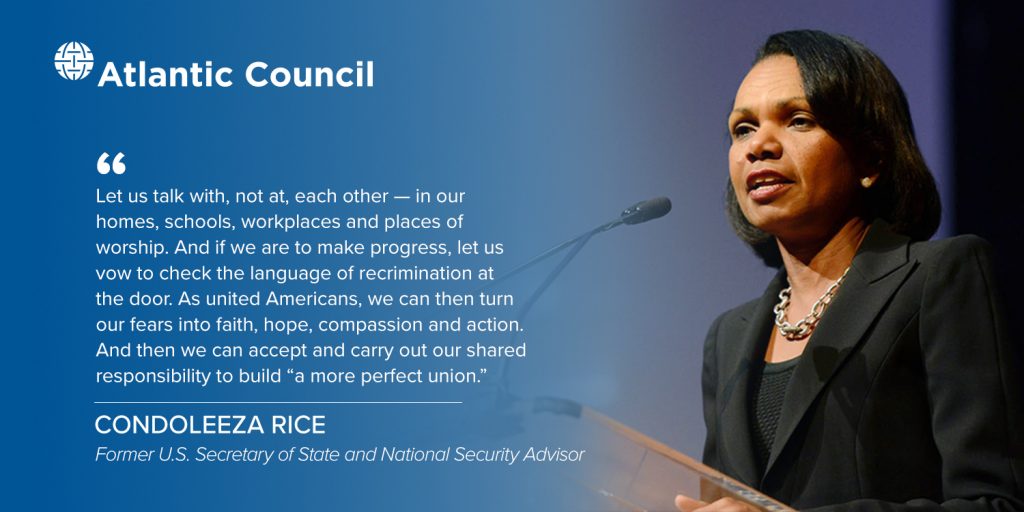
ATLANTIC COUNCIL TOP READS
Image: Demonstrators raise their fists in the air near the White House, during a protest against racial inequality in the aftermath of the death in Minneapolis police custody of George Floyd, in Washington, U.S., June 6, 2020. REUTERS/Leah Millis
